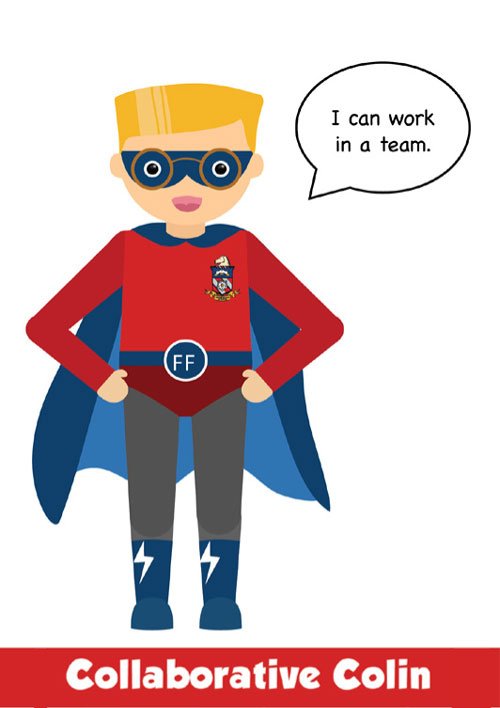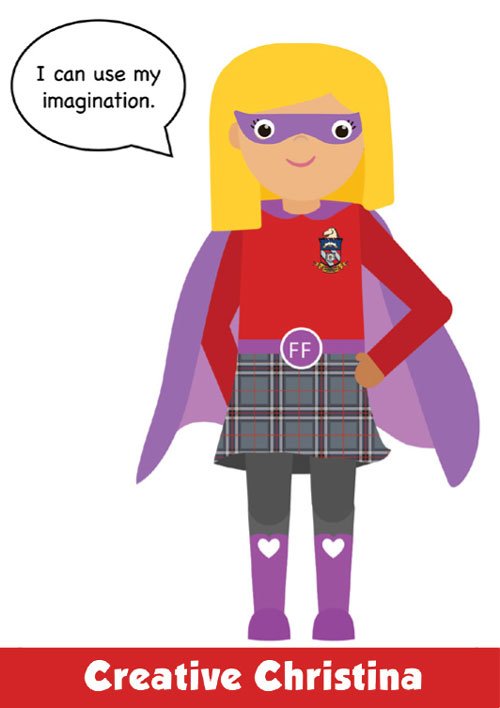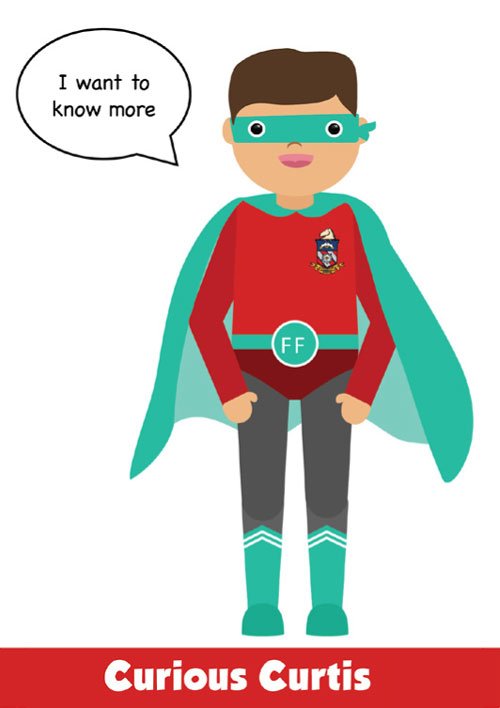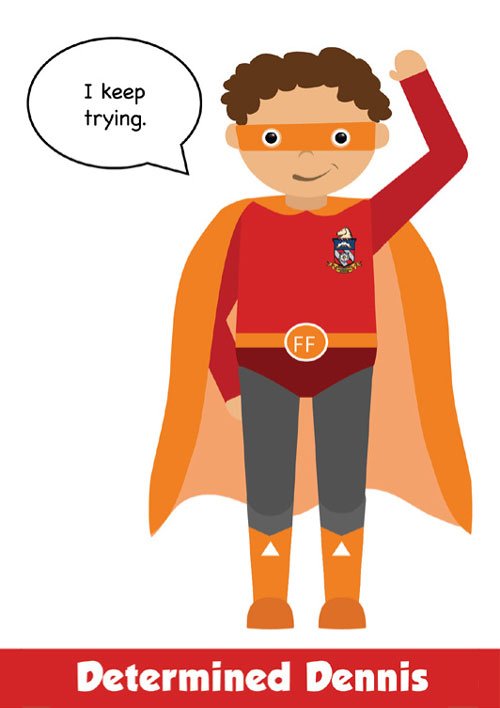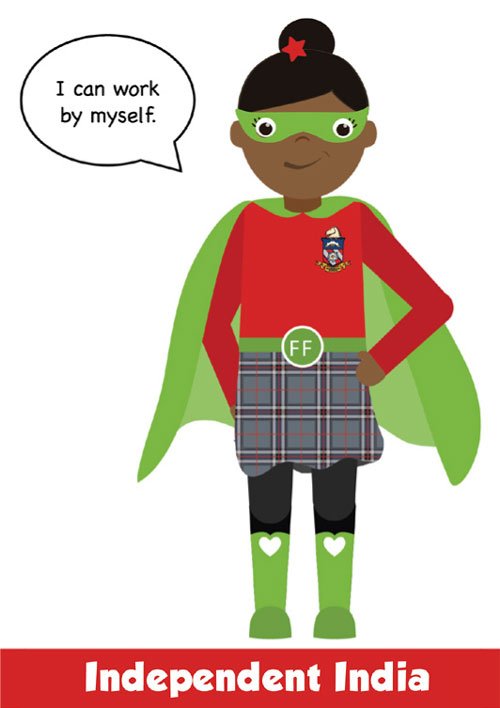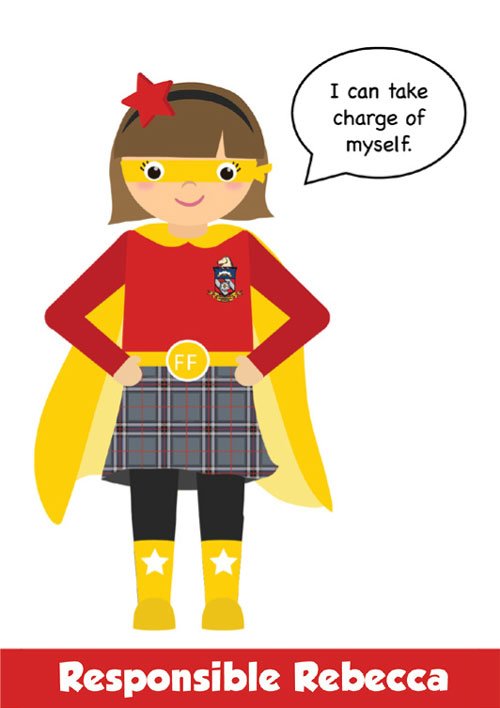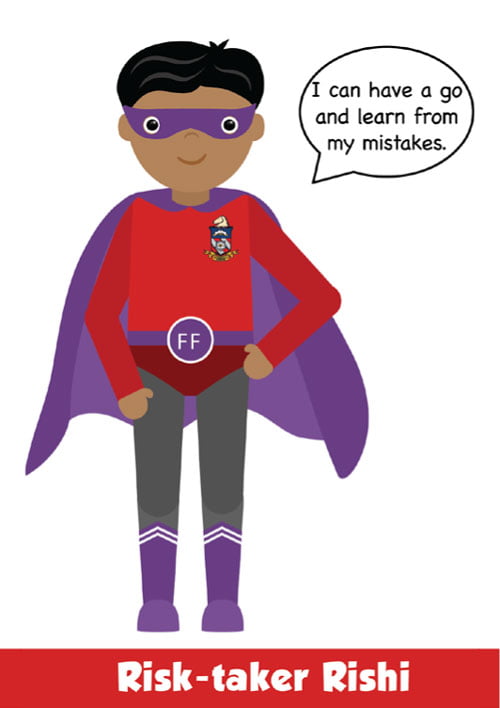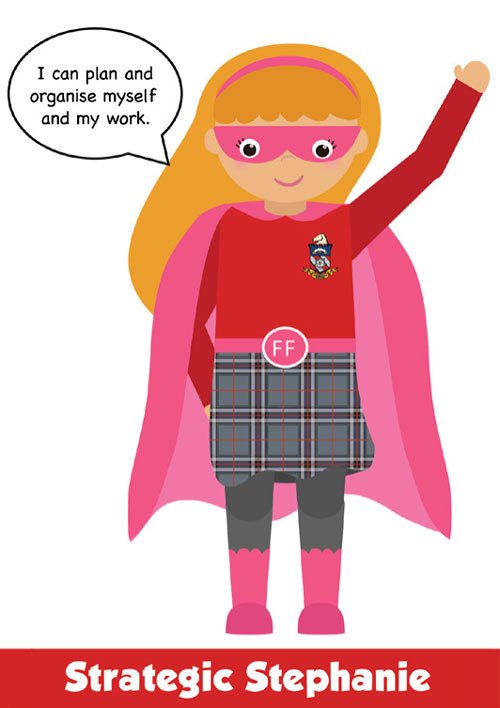‘It is not what you do for your children, but what you have taught them to do for themselves, that will make them successful human beings.’ Ann Landers
April 2018
Our school motto is: ‘Giving a flying start to the citizens of tomorrow.’ I have been thinking recently about what ‘tomorrow’ holds for our children; given the pace of technological growth, the ‘shrinking’ of the world and the subsequent uncertainties of the future workplace. What will tomorrow be like and how can we prepare our young children to face its challenges with courage and independence?
When we teach our children to ride a bike, they usually start with stabilisers and, as their confidence grows, we remove the stabilisers until they are cycling solo. They usually fall off a few times until they find their centre of balance but that feeling of elation and success when they look over their shoulder and see you waving from the distance is one of life’s precious moments as a parent.
This scaffolding of support is common in all aspects of our children’s lives but sometimes we forget to remove the stabilisers and our children end up relying on us too much. All too often, we hear the excuse that, ‘My mum forgot to pack my kit’ or, ‘My dad didn’t sign my planner.’ At Froebelian, we are constantly reminding the children of their personal responsibilities and encouraging them to be proactive in their organisation, even at a very young age.
Over my career, I have seen many parents who, out of the deepest love for their children, want to do more, not less, for them. They believe that the more time, energy and attention they can devote to their children, the better. They carry their bags for them, check lost property for things they have lost, hand in letters at the office, unpack and repack their sports bags (guilty as charged!), tying their shoe laces etc. Some parents even do their homework for them – we can always tell!
We cannot expect our children to learn the skills of independence if we are always doing things for them. Every time we do something for our children that they are capable of doing for themselves, we are telling them that we can do it better/faster/more efficiently than they can. Sometimes, the pace of our busy lives dictates this – we tie their laces for them because we are late and need to get work. Making children taker greater responsibility for themselves involves taking a risk, on both sides. Parents can be desperate to step in as soon as the child starts to struggle, instead of leaving them to try to solve the issue they face. For the child, it can be too easy to give up rather than persevere if they know mum or dad will do it for them.
It may be hard to hear, but there are times when your child is better off without you! Wonderful things can happen for children when they are away from their parents, no more so than when they are away on residential. We have a number of trips coming up over this half-term and they are excellent opportunities for the children to develop their independence skills.
It’s a paradox: a 19-year-old member of staff at a residential centre – a stranger – is often better at getting a child to pick up their clothes than the child’s 39-year-old parent is! Why? Because the child knows it won’t be done for them. Making beds, clearing tables, preparing lunch, packing their rucksack, taking a shower – these are all things we expect from our children on residential. They will do it because they can do it and they are expected to do it. No excuses!
In order to grow in the ways they need to grow, children have to take the lead, and usually away from us. Every child needs opportunities to practise being independent, and every parent needs to step back to provide those opportunities. Independence is like high jumping: you have to run and jump and sometimes fail, and then put the bar back up and run and jump again. As a parent, you’ll wince when your child hits that bar, but you can’t jump for them.
‘It is not what you do for your children, but what you have taught them to do for themselves, that will make them successful human beings.’ Ann Landers

